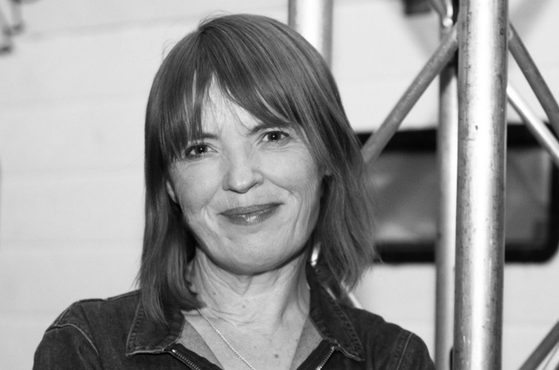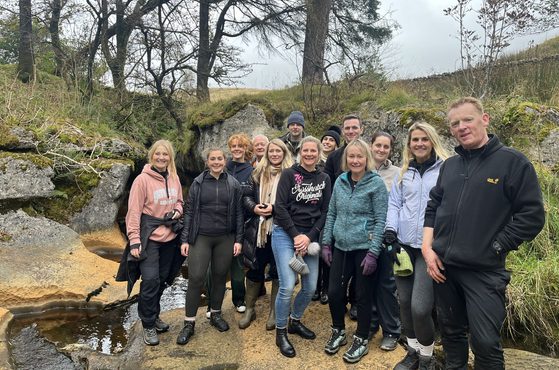True North: Northern Star — Chelsea Slater
Chelsea Slater is the co-founder and CEO of InnovateHer, an organisation on a mission to support girls and non-binary teenagers into the tech industry.
Read more
We make the difference. Talk to us: 0333 004 4488 | hello@brabners.com
An award-winning growth consultant for scaling businesses, Deb Hetherington is a passionate champion of harnessing agility, collaboration and inclusion to drive game-changing social and economic impact across the UK.
Having spent time in her career as Head of Innovation at Bruntwood SciTech — the UK’s leading property provider in building innovation ecosystems — Deb believes in creating diverse and connected spaces that support scaling science and technology businesses to build networks and access the vital ingredients for economic growth.
We sat down with Deb to learn more about her work at Bruntwood SciTech and beyond.
I wear a number of hats focused on innovation, business, the economy and the growth of SMEs. From working in research at Leeds Beckett University to my participation on a range of local government boards and as a regional co-founder of Women in Leeds Digital (WILD), I see many different societal and economic challenges that can be tackled by working smarter, not harder — prioritising agility, collaboration and inclusion.
Another vital component of any innovation ecosystems is diversity. Something that Bruntwood SciTech does incredibly well is build inclusivity into its spaces. You can’t just think about diversity and inclusion once the project is completed 20 years down the line — you need to embed that in the planning and design stages.
It’s about demonstrating a commitment to your local community, bringing many different voices and perspectives together on this journey from the start, learning from them, understanding how to make developments more accessible and offering support.
For example, during my time at Bruntwood SciTech we hired a Community and Social Impact Manager to lead in this area and designed a steering group that’s bringing in representatives from local councils in the areas where we’re building developments. One of Bruntwood’s sites has a grant from the Greater Manchester Combined Authority to support training for people from underserved communities, which we took on before the site was even completed — so this initiative was built into the design of the building from the very start.
Collaboration is vital. It’s the golden thread to innovation and success. You need to have what I call a balanced triple helix — industry, academia and local government. When they work together, great things can be achieved — providing regions with the right ingredients to deliver impact.
The North is great at collaboration and coming together as a community for the betterment of the wider region. If there’s a problem, people work together as partners to address it and there’s a definite appetite to fix things. We need to keep doing what we're doing — and keep doing it really well, while scaling the opportunities for collaboration.
A good example is ID Manchester — the world's largest applied innovation site currently being built in Manchester city centre. A joint venture between Bruntwood SciTech and the University of Manchester, ID Manchester is a fantastic example of the triple helix model working successfully. Bringing an industry partner committed to creating spaces for acceleration, innovation and growth together with one of the top five global universities for health and bio innovation, ID Manchester will be a place for start-ups and spin-outs to access the resources and connections needed for scale and commercialisation to help address some of society's biggest challenges.
If you want to collaborate for a purpose-driven objective, you need a clear vision of what you're trying to achieve together and how to keep that vehicle on track. I’ve been to so many roundtables and steering groups that discuss change but generate no action — so I’m pleased to see how the True North Advisory Council is using data to deliver practical, measurable objectives.
The first step to making an impact has to be understanding what drives you (your purpose). It’s about finding your passion and reaching out to people or initiatives to push the needle and say: ‘Hey, can I get involved in this?’. The more you do in that space, the more doors will open for you.
Do your research. Ask questions. Don’t just do something for the sake of it — get out there and see what the gaps are. Don’t try to fill gaps that don’t exist. Once you’ve identified the space, having a genuine impact is about understanding what your KPIs are and what success looks like.
If opportunities present themselves, say ‘yes’. If the opportunity isn't there, go and find it. That’s what I would tell anybody. Find out who the change makers are within your region — the people and organisations passionate about instilling change — and build yourself a network. Go for a coffee and learn from people. You’re never going to be the smartest person in the room — and nor should you be — so ask as many questions as you possibly can.
Deb is just one member of True North — our growing collaborative network of purpose-driven leaders.
If you’re committed to supporting the future of the North, join us.
Chelsea Slater is the co-founder and CEO of InnovateHer, an organisation on a mission to support girls and non-binary teenagers into the tech industry.
Read more

Claire McColgan MBE is Liverpool City Council’s Director of Culture & Major Events and has helped shape the city's cultural and economic transformations over the past two decades.
Read more

Kingsdale Head is a 1,500-acre farm and upland regeneration project in the Yorkshire Dales, owned by wife and husband Catherine Bryan and Tim Yetman.
Read more